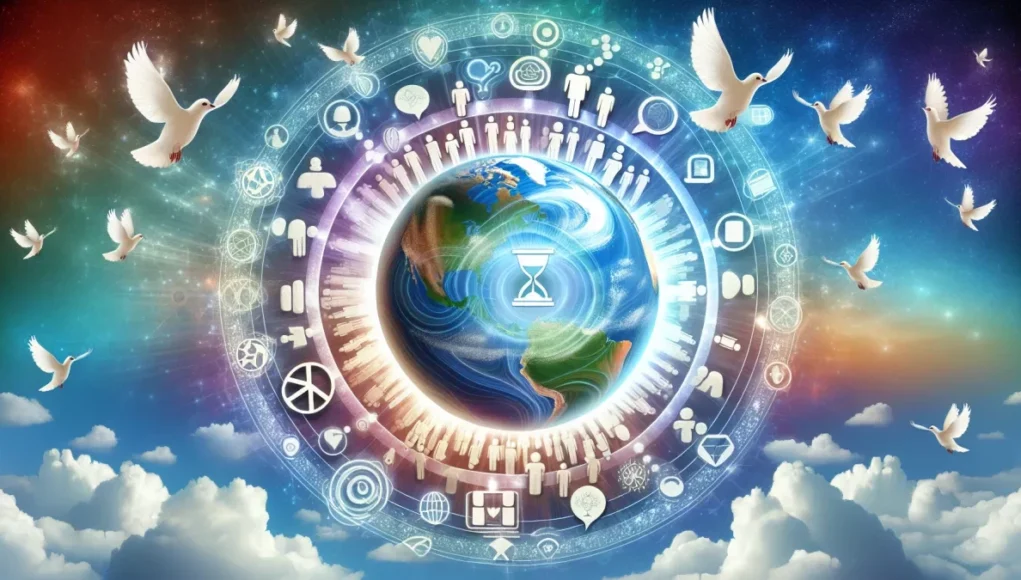When traversing the vast and ever-evolving landscape of online communities and social media platforms, it quickly becomes apparent that the terrain is steeped in a culture of unabated criticism and outrage. What was once touted as a revolutionary space for open dialogue and the free exchange of ideas has seemingly morphed into a battlefield of blistering arguments, hit-and-run trolling, and shaming campaigns. However, there is an emerging discussion concerning the need for ushering in new dimensions of online engagement that are more conducive to meaningful dialogue and courteous interactions.
This emergence does not advocate for a policed online environment or curtailing free speech rights. Instead, it calls for a responsible and conscientious approach to online interactions embedded within the individual user, social media platforms, and governing entities. The growing understanding is that a sustainable online environment should harbor a culture that promotes empathy, constructive criticism, and mutual respect, moving beyond the prevalent dynamic of reactive outrage.
Studies portray a picture of an escalated outrage culture online. According to a Pew Research Center survey, 64% of Americans believe that fabricated news has caused “a great deal” of confusion about basic facts of current events. Here, manufactured outrage is a major culprit, manipulated seamlessly using digitized deception. As per the study by Monash University, social media has further amplified this reactive outrage due to its design that stimulates immediate, emotive responses over slow, deliberated conversation.
An emerging trend aimed at combating outrage culture is digital minimalism. Author and Computer Science professor Cal Newport structures this concept around a philosophy where you focus your online time on a small number of carefully selected activities that strongly support things you value, and then happily miss out on everything else. This includes careful selection of internet sources for news and conversation, avoiding click-bait headlines that incite outrage, and minimizing time spent on social media platforms.
Another noteworthy approach is to encourage digital civility, a notion that promotes respect, understanding, and dignity in the digital world. A global survey by Microsoft on Digital Civility indexed the behavior and attitudes of teens and adults and found that while 63% believed they knew what actions to take to protect themselves online, only 20% actually put these into practice. There is an evident gap in recognizing the need for civil engagement online and actually practicing it.
Moreover, social media platforms, being key drivers of online conversations, are taking concerted steps to mitigate the outrage culture. Be it YouTube’s policy to eliminate hate speech and Twitter’s initiative to check for potentially offensive replies or Facebook’s expanded definition of protected categories, corporations are catching up with the need for healthier online spaces.
However, holding corporations solely responsible would be a narrow approach. Preserving free speech without succumbing to an outrage-fueled chaos requires a collective endeavor. As seen in the agreement between the UK government and major tech companies to have clearer definitions of harmful content, the governmental stand plays a crucial role as well.
Public opinion, though, remains divided. While some view these developments as an overreach that could potentially censor unpalatable opinions, others consider them as necessary checks to quell rising digital toxicity.
Thus, new ethics for online engagement should be viewed not as rigid rules but as evolving guideposts that encourage thoughtful and respectful interactions. As we attempt to navigate beyond the age of outrage, they serve the dual purpose of preserving the free spirit of the internet while fostering an environment of digital peace.
Even as we strive to reconceptualize online etiquette, it is imperative to remember that the true power lies within us, the online denizens. We have the capacity to shape the digital cultures we want by merely adjusting our online behavior, thus shifting from being mere spectators of online discourse to its active molders. In this synthesis of collective responsibility, perhaps lies our route to exploring new ethics in online engagement beyond outrage.
Sources:
– “Online Harassment 2017.” Pew Research Center: Internet, Science & Tech, 10 July 2017, www.pewinternet.org/2017/07/11/online-harassment-2017/
– “Digital Stress: Social media amplifies outrage at nerve-wracking speed, says Monash study.” Monash University, 27 May 2021, www.monash.edu/news/articles/digital-stress-social-media-amplifies-outrage-at-nerve-wracking-speed,-says-monash-study
– Newport, Cal (2019). Digital Minimalism: Choosing a Focused Life in a Noisy World. New York, NY: Portfolio/Penguin.
– “Societal Impact.” Digital Civility Challenge: Promoting Civil Discourse Online, Microsoft, www.microsoft.com/en-us/digital-skills/digital-civility
– “UK government and tech giants agree to principles for tackling child sex abuse.” Gov.uk, 10 September 2020, www.gov.uk/government/news/uk-government-and-tech-giants-agree-to-principles-for-tackling-child-sex-abuse.






